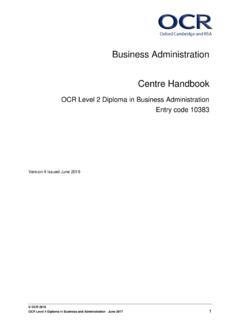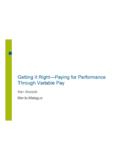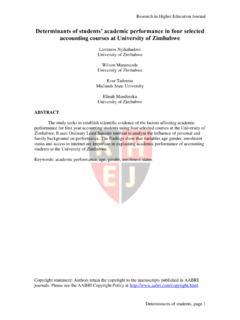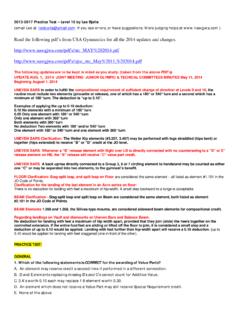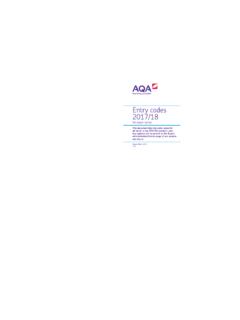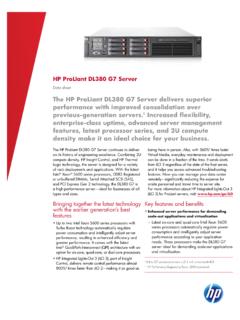Transcription of MAXIMUM PERFORMANCE ON ENTRY-LEVEL POLICE EXAMS
1 MAXIMUM PERFORMANCE . ON. ENTRY-LEVEL POLICE EXAMS . A Candidate's Preparation Manual David M. Morris, , Copyright 2004 by Lamar Publishing House, LLC. All rights reserved. Lamar Publishing House, LLC. Box 20114. Alexandria, VA 22320-9998. No part of this book may be used or reproduced, stored in any retrieval system or transmitted in any form by any means, electronic, mechanical, photocopying, recording or otherwise, without prior written permission of the publisher, Lamar Publishing House, LLC. For information regarding permission(s), write to: Rights and Permissions Department, Lamar Publishing House, LLC. The views and instructions expressed herein are those of the author. No expressed or implied guarantees or warranties are made. FIRST EDITION. Printed in the United States of America ISBN 0-9744747-1-1. Federal Law prohibits the unauthorized copying of any part of this work. The author owns a valuable property right in this material that is seriously damaged by even a seemingly trivial incident of improper duplication.
2 Such activity demonstrates an indifference to the law that is not consistent with the obligations of a law enforcement officer. Please show respect for the author and the law by strictly observing the prohibition against wrongful reproduction. TABLE OF CONTENTS. INTRODUCTION .. 1. CHAPTER 1: ABOUT THE TEST .. 5. CHAPTER 2: ADMINISTRATIVE INSTRUCTIONS .. 9. CHAPTER 3: TYPES OF QUESTIONS AND HOW TO PREPARE FOR THEM .. 23. CHAPTER 4: STRATEGIES FOR TAKING THE TEST .. 63. CHAPTER 5: PRACTICE EXAM .. 75. INTRODUCTION. Most candidate preparation manuals dedicate a significant amount of printed material to informing the candidate of the duties for law enforcement jobs, the minimum qualifications, drug testing, physical abilities testing, and other related subjects. After spending a considerable amount of time reading numerous pages, the candidate finally arrives at a place in the manual devoted to text material that might help him/her score at MAXIMUM potential on an ENTRY-LEVEL test.
3 Although it may be valuable to learn about these other subjects, this entire book's purpose is to prepare you, the candidate, for performing at your MAXIMUM on ENTRY-LEVEL Law Enforcement Tests. However, it cannot assure you of a score higher than your potential MAXIMUM PERFORMANCE on the test. Remember that all of these recommendations are suggestions that would help most candidates, including me, if I were a candidate. However, ultimately, you are responsible for your own PERFORMANCE , and you must decide what will work best for you. This manual increases your possibility of achieving at your overall MAXIMUM PERFORMANCE level by focusing on test preparation beforehand and test-taking strategies during the actual test administration. To accomplish this goal, the remainder of the manual is organized in the following manner. Chapter One - About the Test In Chapter 1, you the candidate are presented with the general construction of the test and the logic behind the construction of the test.
4 Also, you are reminded about investigating your options for re-taking the test. 1. INTRODUCTION. Most jurisdictions use an ENTRY-LEVEL Law Enforcement Exam that assesses those cognitive abilities that are relevant for law enforcement work. For some jurisdictions, the multiple choice test for ENTRY-LEVEL Law Enforcement may be the sole tool used for assessing cognitive abilities of candidates and, therefore, it is the focus of this manual. NOTE: entry - Level Law Enforcement EXAMS do not test your knowledge of law enforcement work but rather should test the abilities needed to learn and do law enforcement work. The abilities that are tested by ENTRY-LEVEL Law Enforcement EXAMS have been researched for several years by numerous scientists and have been demonstrated to be related to law enforcement work. Chapter Two - Administrative Instructions Chapter 2 will familiarize you with the typical administrative instructions. Many errors that candidates make are attributed to not understanding the instructions or NOT filling in the answer sheet forms correctly.
5 To maximize your score, you must reduce these unfortunate errors that may suppress your true PERFORMANCE on the components of the test. Candidates should review this chapter once several months before the test and once a few days before the test. 2. INTRODUCTION. Chapter Three - Types of Questions and How to Prepare for Them Chapter 3 first presents you with a list of typical abilities and definitions of those abilities that are usually represented in some form on POLICE tests. The remainder of the chapter presents you with the different categories or types of questions. These types or categories, either obviously or sometimes not so obviously, link back to these abilities. Your focus should be on learning how to handle the types of questions, and that will be the focus of this chapter. Preparation strategies will be given for practicing and developing the skills that will help you achieve your MAXIMUM PERFORMANCE on the exam.
6 This chapter should be used in order to prepare best for the test. Chapter Four - Strategies for Taking the Test This chapter deals with techniques or strategies that may help you maximize your PERFORMANCE when you are actually taking the test (during the test administration). Chapter Five - Sample Test This chapter presents you with a practical test experience. You may send your answer sheets in for scoring and feedback. You should allow two (2) weeks for the return of your scores and feedback report. There is no additional cost for this service. If you would like to have a quicker return on your answer sheet, you have two (2) options, both of which require a small additional fee: (1) you may overnight your answer sheet directly to the Scoring Center for Morris & McDaniel, Inc., and include a check for the handling and the 3. INTRODUCTION. cost for overnighting the feedback report to you, or (2) if you want immediate feedback, for a small fee, using a credit card, you can enter your responses to the items into a form on our website, and your score and diagnostic feedback will be available immediately for printing.
7 4. CHAPTER 1. ABOUT THE TEST. There are approximately sixteen thousand (16,000) law enforcement departments nationwide, and most of these departments administer POLICE examinations. The specific exam components may vary from department to department, but examples could include a reading ability test, a writing ability test, a questionnaire that you must complete regarding your past experiences or personal preferences, a medical exam, a physical agility exam, an oral board, and a cognitive ability exam. Although the other components are important, this manual will focus only on the cognitive ability exam component, the multiple choice examination. Most ENTRY-LEVEL law enforcement cognitive ability tests measure abilities that are important to successful PERFORMANCE of the job. In fact, a law enforcement jurisdiction usually goes to considerable effort to make sure that the test vendor has demonstrated the test to be a valid predictor of success and has evidence that the test does equally well predicting success for all racial, gender, or ethnic groups.
8 Even though the test is designed to measure skills and abilities important to the job, the test does not require you to have prior knowledge about POLICE work. The test will assess those abilities that are needed, and sometimes the questions are placed in a law enforcement context. 5. ABOUT THE TEST. The administration of the test usually is structured in such a way so that you are first presented with a booklet containing material that the candidate must study and remember. You are allowed anywhere from thirty (30) minutes to one (1) hour to study and memorize the material. You are informed that you will be asked questions about the material later. After the designated study time, the memorization material is taken up, and the test booklet (the booklet with the test items) is passed out. This method of testing for law enforcement candidates has a long history. In old London, England, a POLICE supervisor would gather around a table all the lads wanting to be POLICE bobbies (they were all lads in those days).
9 Then the POLICE supervisor would empty the contents of his pockets onto the table. Without any explanation, the POLICE supervisor would wait one-minute and then tell the lads to follow him into the next room. In this room, the lads would be told to take a tablet and a pencil and list as many of the items that the POLICE supervisor had emptied from his pocket and thrown on the table. The ability to remember such details was known to be important for being a POLICE officer - even in those days. In modern times, the practice has become more standardized. A booklet is handed to candidates containing material that the candidate needs to study and commit to memory. The material that must be learned and committed to memory may vary from test to test but usually contains vocabulary words and definitions, hypothetical POLICE cases, forms for 6. ABOUT THE TEST. completion, wanted posters, and photographs or drawings of various scenes.
10 After a set time has elapsed, the booklet is taken up, and the candidate is handed the exam which will have some questions that will test how well the candidate was able to memorize the material and includes other questions that address abilities other than memory that are also important to law enforcement. The test that is handed to you usually has approximately 100 items which sample abilities and skills important for POLICE work. There is usually a time limit, but it is usually not a speed test. In other words, you are not time-pressured; the time allotted is considered adequate to read and respond to the questions. However, you should work efficiently. In many cases, if you finish early you are allowed to turn in your paper and leave. Usually there is no penalty for guessing. One of the best ways to prepare for the test is to find out from the jurisdiction as much as you can about the test ahead of time. Listening to and following all the instructions is very important.
